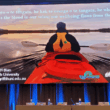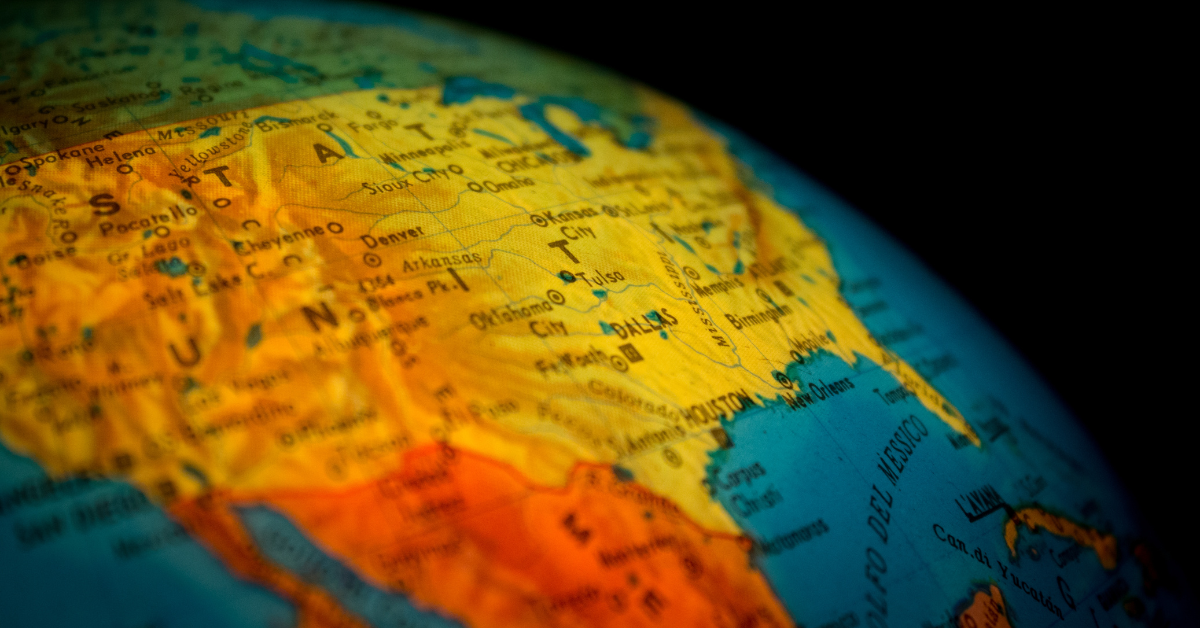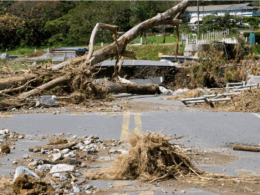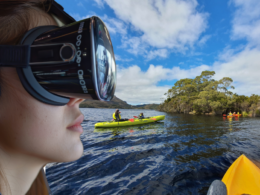We live in chaotic and turbulent times. I don’t know quite where to begin with the two weeks that have passed since my last podcast. So much has happened and so much has changed. Most of it has been driven from Washington DC and it has been wall-to-wall bad news. But the response has been decisive and reassuring. Consumer power is being exercised. The oligarchs are beyond our direct line of slight, but the Oligarchy is not beyond our reach. What is happening in these turbulent times has implications for tourism. Fortunately there are pockets of resistance which reassure us that the links between tourism and science remain intact.
Transcript:
What a two weeks it has been since my last podcast. So much has changed in this chaotic world. Trump’s tariffs have received a predictable response. In recent days an unnecessary and unwanted ‘trade war’ has seen markets tumble. While it was inevitable that countries slapped with draconian tariffs from the White House would respond, it is the nature of the response that has been so interesting.
Countries such as Canada and Mexico – America’s immediate neighbours and therefore most important trade partners – have responded in equal measure. Mike Carney, the incoming prime minister in Canada, has spoken out against the absurd suggestion that Canada will become the 51st state of America. In Canada, retailers have stripped their shelves of American products. I didn’t know that Canada exports energy to 1.5 million American households. Well, not only have reciprocal tariffs been threatened on Canadian energy, with obvious implications for the costs of power for those American households, but the termination of Canadian energy supply to America now looks likely. American’s that I have seen commenting on social media have actually encouraged the strong Canadian response, to clearly signal the disapproval of the international community, and put pressure on the White House.
Meanwhile Elon Musk has continued to go about his work at DOGE – the Department of Government Efficiency (so-called), ripping the heart out of the American public service. The health and education sectors have been hard hit. USAid staff have been sent home with immediate impacts on aid to those facing extreme hardships in different parts of the world. Public servants in government departments working in the conservation of forests, endangered species, and marine mammals have lost their jobs and careers.
The response to these political developments has been strong – not only from other governments but also from consumers. Almost overnight Tesla has become a poisoned brand, in response to Musk’s interference in America’s democracy and his increasingly extreme right-wing views. Tesla car sales in Europe and around the world have plummeted. Billions of dollars of Telsa stocks are being written off every day.
The treatment of Zelenskyy in the Oval Office has clear vivid insights into the modus operandi of the second Trump presidency. And the global condemnation and public response has been decisive. The response to Musk and Tesla has seen calls in Europe to stop using American products altogether, to build a stronger and more united European economic community. Those American products include social media platforms such as Facebook, Instagram, X and Reddit, messaging media such as WhatsApp and Messenger, services such as Google, Gmail and ChatGPT, and many more…. Streaming services such as Netflix, Disney+ and Youtube, clothing, appliances, cars, electronics, fast food, drinks like Cola Cola, Pepsi and Fanta – the list goes on.
These developments have enormous implications for tourism services and providers – location services such as Google Maps, social media communication platforms such as Facebook and Instagram, accommodation booking platforms such as Airbnb, Booking.com and hotels.com, airline manufacturers such as Boeing, transport providers, fast food outlets such as McDonalds, Dominos, KFC and Subway.
But could we really survive in tourism without these American products? It is clear that a a very significant and growing proportion of consumers in Europe are determined to try. Interestingly all have viable and, in many cases, preferable alternatives. Consumer online reviews are highlighting EVs being produced by European and Asian car manufacturers that are considered superior to Telsa and without the political baggage. Airbus emerged many years ago as more than a rival to Boeing. There are much more healthy local options to fast food outlets at destinations. Give me a Ferg Burger any day over McDonalds. Polarsteps in a travel communication platform developed in the Netherlands in 2015 – a great European alternative to those provided by Trump’s billionaire cronies that have come to be associated with gross abuses of private data, political interference and the undermining of democracy by the super rich.
Of course these are companies that have surfed the waves of globaliation and neoliberalism, generating vast personal wealth which in the case of some billionaires – including Musk and Bezos–have such extraordinary wealth that they have been able to finance their own personal space programmes. But the current political climate seems to have fully revealed that these people are consumed by the desire for power and wealth, driven by selfishness and greed. Their business empires have had many negative outcomes – driving out local high street businesses, leaking revenue out of local economies via online platforms and hollowing out host communities via housing and rental booking platforms.
Could this be a turning point for the way that we travel? Many people have started stripping the Apps of American companies off their phones. It seems that many consumers are motivated to do without these service providers as much as possible. How these global political developments play out and the implications for tourism will be interesting to observe.
All of this is really just an entrée to the focus of my podcast today. The dismantling of the public service in America has extended to education, science and research. This has been dubbed the ‘War on Science’. In America in recent days research contracts have been terminated, researchers have lost their jobs, science laboratories have been closed. Life-saving health science and research programmes have been discontinued. Published scientific information has been removed en masse from federal websites, scientists fired in the name of efficiency, research funding and clinical trials stopped overnight. Censorship of science, and a shift to a non-science approach, is in progress.
What is happening in the US has been described as unprecedented, shocking and insane. I have been listening to the ‘Science Vs’ podcast recently. In one episode a science journalist at Nature – one of the world’s most prestigious science journals – reported on his tracking of Trump’s actions, which have been immediate and swift, starting with executive orders. He outlined mass firings, freezing of research funds, censoring of government websites (some of which have disappeared altogether) and the censorship of terms relating to gender ideology. Words such as diversity, equity and inclusion have been deleted from all government resources.
It has been difficult to keep up – hundreds or thousands of website resources have been taken offline. Some have reappeared with disclaimers based on the denial of science. Datasets that have been critical to identify populations that are at high risk of certain viruses have disappeared– it is uncertain if these datasets have been removed and stored, or destroyed.
The wholescale dismantling of the American science and research system is underway. Science is being removed as a barrier to extreme political ideology. The changes that have been made just in the space of 2-3 weeks will have long lasting consequences.
****
Should we be worried about this in New Zealand? Yes, we should. Not only because what is happening now in America is already impacting people. Both in America through the suspension of cutting edge medical and pharmaceuticals research. But also worldwide – through for example the immediate suspension of US Aid. But we should also be vigilant of our own government’s views on science and research more broadly.
Two major streams of research funding in New Zealand are managed by the Ministry of Business, Innovation and Employment. One is the Endeavour Fund which funds innovative research ideas with high potential for benefit for New Zealand. Outcomes are defined in relation to high potential impacts across a range of economic, environmental, and societal objectives, while giving effect to the Vision Mātauranga policy.
The other is the Marsden Fund which was established in the 1990s to provide contestable government funding for research in social sciences, humanities, physics and chemistry, and biomedical science. The Marsden funds “blue skies” research, which means research without a single clear outcome or economic benefit. It recognises that research can create insights, possibilities and knowledge that researchers can’t always directly see when they embark on their projects. Blue skies research is more wide-ranging and inquisitive.
Any research into the fields of science, engineering, mathematics, the social sciences and the humanities has been eligible for Marsden funding – until now
Recently Judith Collins, the Minister of Science, Innovation and Technology, announced major changes to the Marsden Fund that will apply from this year, eliminating Marsden funding for the humanities and social sciences. Her government now requires that at least 50% of the Marsden funding must be directed to projects that have economic benefits to New Zealand. The humanities and social sciences panels are being disbanded because these areas will no longer be funded.
The explanation provide by Judith Collins is economic: “The government has been clear in its mandate to rebuild our economy. We are focused on a system that supports growth” she has said.
Universities New Zealand responded in a press release saying “Humanities and social sciences are the disciplines that underpin our society – and research in these areas is crucial for understanding society transformation. In a time of societal upheaval, not only in Aotearoa New Zealand but worldwide, government disinvestment in these disciplines is astonishing.”
In a joint letter, a number of professional associations representing fields in the humanities and social sciences called on Collins to “reverse the devastating decision to stop supporting social science and humanities research. There are other changes in process under the current government, which has made its views clear. The focus is on growth. Like Trump, research that may question the government’s views has now effectively been silenced.
****
Last week the absurdity of these government decisions came into sharp focus for me, through two forums on different sides of the world.
Firstly, last week the ITB Tourism Conference took place in Berlin. Held annually since 1966, the ITB conference is the leading forum in Europe for the global travel and tourism industry. Naturally, the primary audience is the European travel and tourism industry. Global organisations such as UN Tourism and the World Travel and Tourism Council, and European travel businesses and organisations such as the European Travel Commission (ETC) attend. The temptation is to assume that industry growth interests would be the key driver. But last week when I viewed a series of recordings of ITB keynote speakers online I was so pleased to see a strong voice at the conference being given to the science community.
Prof. Stefan Rahmstorf – and oceans scientist from the Potsdam Institute of Climate Impact Research – spoke about the current state of climate science and the implications for Europe, with very clear messages for the tourism industry. At the end of his presentation he was asked “what is the single most critical action the tourism industry can take in regards to the protection of our oceans this year?”.
He stated that carbon emissions are the greatest threat to our oceans, and to protect the oceans and our climate we must stop emitting carbon. He explained that it is now clear that the tourism industry can not do that, but governments can – so the best thing that the tourism industry can do is not stand in the way of government climate action, and not lobby against climate action measures – because that would be very short sighted for the tourism industry. Judith Collins would not have liked that message. It sounds too much like ‘anti-growth’.
Stefan Rahmstorf is a physical scientist and his presentation was informed by climate data. By contrast Anna Pollock from Conscious Travel spoke about regenerative tourism and the need for a metamorphosis – a paradigm shift in thinking that will drive system wide change. Her presentation was anchored in the social sciences and was clearly informed by indigenous world views and perspectives such as Te Ao Māori. This presentation provided important social science insights into tourism system reconfiguration.
I also viewed Prof. Stefan Gössling’s presentation. He spoke about the looming age of non-tourism in Europe if we don’t get emissions under control. His contributions are rare because he is able to bridge the physical and social sciences.
Finally, I viewed the presentation delivered by Zoritsa Urosevic – Executive Director at UN Tourism. She explained her strong view that science must inform the measurement and mitigation of tourism carbon emissions. She cited the 8.8% of total global emissions figure from the Nature Communications paper that we published in December last year. She also called for a global partnership to advance climate action in tourism. She explained her view that under the United Nations banner an advisory panel for such as a partnership should be formed of four parts, namely:
- Policy – governments and destinations
- Business – private sector and associations
- Finance – international financial institutions
- Science – Independent academic researchers.
It was pleasing to once again have endorsement of the 8.8% figure from UN Tourism, but much more importantly – in the current climate – it was particularly important to have a strong statement of support for academic research. The links to the presentations I mention here are listed at the end of the transcript.
The second forum I want to mention was as far away from Berlin as you could get. Two weeks ago Susanne Becken and I were in Tāhuna Queenstown in New Zealand with our collaborator Darren Rewi for the next steps in our visitor optimisation project funded by the Queenstown Lakes District Council. We were returning to Queenstown and Wānaka for our follow-up stakeholder workshops. This project is now well advanced and in fact nearing completion. The workshops were an important forum for reconnecting with stakeholders following initial workshops in September 2024, and sense checking the models and frameworks that we have developed on this project.
While in Queenstown we also had a one-hour workshop with QLDC Councillors to present and discuss the work that our team – which includes Shane Vuletich from FreshInfo (Auckland) and Oz Sahin (University of Queensland) – has been advancing over the course of the last year.
This has been an inspiring project which, we think, is going to provide world leading research insights into regional destination management. Like the stakeholder workshops, the Councillors were really engaged in our work and animated questions and discussions followed our presentation of the models. The response to our work was very positive and a lot of discussion revolved around use of data and models and how they might best inform tourism policy and planning and of course future council investments.
There will be more to follow on this when the project is completed in the middle of the year. But for now, and for this discussion, it really is the vision of the QLDC and the two regional tourism organisations – Destination Queenstown and Lake Wānaka Tourism – and their awareness of the role of academic research to inform destination planning – that is so important.
Both the ITB and the Queenstown visitor optimisation project are examples of collaboration between government, business and research communities, to address complex issues and challenges in ways that are usefully informed by rigorous research. It is important to acknowledge these successes when the scientific community is under such threat.
****
And one final thing in the news this week that I have to comment on – the wombat and the influencer. I have long argued that some forms of tourism are more sustainable and therefore more desirable than others. Good tourism is to be fostered and encouraged. Other forms of tourism come with negative impacts and must be managed, which can be costly, or perhaps actively suppressed or discouraged. The same clearly applied to tourists themselves. The reel posted by a so-called American influencer – who I will not identify by name – removing a baby wombat from its mother while visiting Australia was quite disturbing. That someone could behave with such selfishness and stupidity is difficult to comprehend. In the reel she is heard laughing as the distressed mother pursues her and saying that “Momma is right there and she’s pissed”.
The public response in Australia has been predictable in its outrage. The culprit hastily left the country before she was deported. Upon leaving she outlined a series of excuses for her behaviour, none of which have been accepted.
There is a link between Trump’s anti-education and anti-science policies in the US and the behaviour of this influencer. It is the combination of arrogance and stupidity. Whether it is playing out at the national level through government’s waging war on science, or at the individual level as in this case, it is a dangerous cocktail.
References
- Stefan Rahmstorf (Potsdam Institute of Climate Impact Research). Ten years since the Paris Climate Agreement: What do the climate data show?
- Anna Pollock (Conscious Travel). Regenerative tourism: Not a trend but a whole new way of thinking and doing.
- Prof. Stefan Gössling (Linneaus University). Tourism and Climate Change: The State of the Art.
- Zoritsa Urosevic (Executive Director, UN Tourism). From Baku (COP29) to Belem (COP30)
- Picking up baby wombats – here








